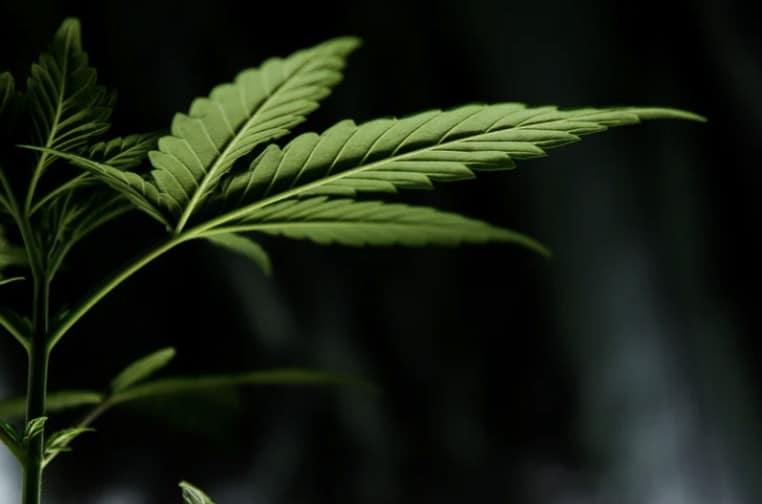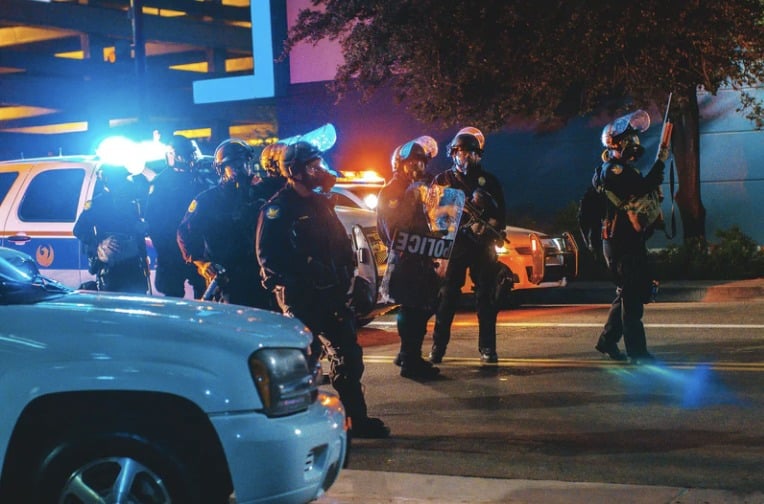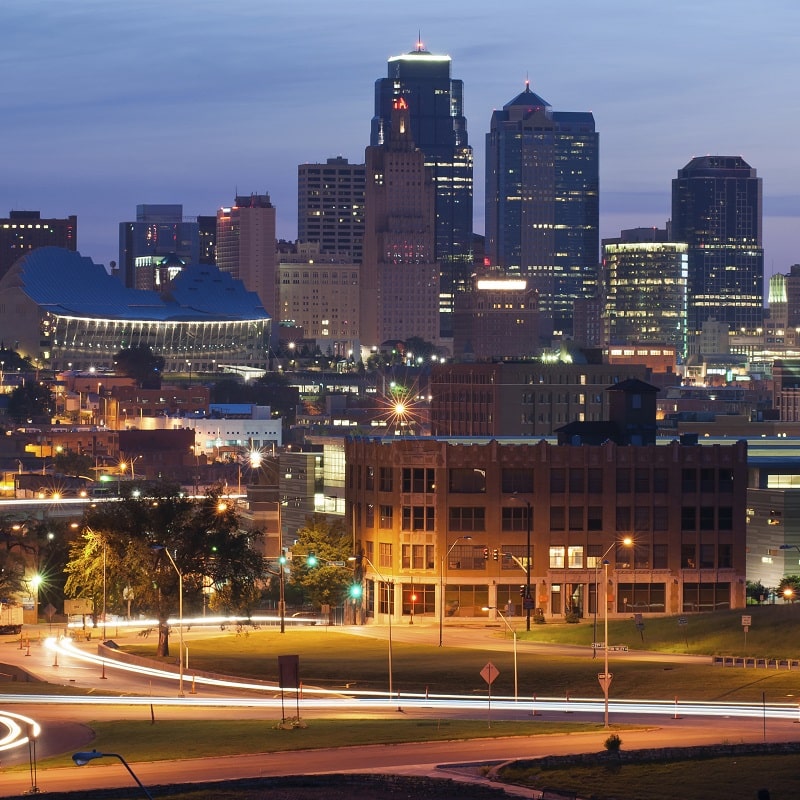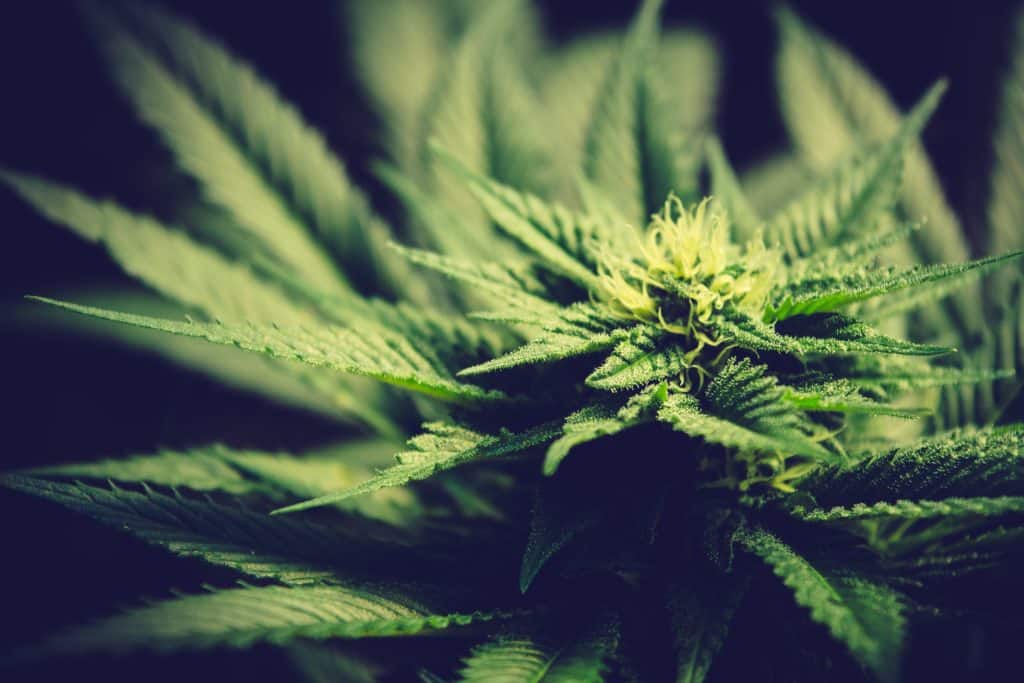Like countless cities across the United States, Kansas City, MO, is taking steps to address long-standing issues between law enforcement and black and brown communities in the wake of the murder of George Floyd. The national uproar in response to the killing by Minneapolis police swept through Kansas City as well, resulting in energized marches and protests across the city, which were met with further police brutality. Activists and advocates for police reform are demanding changes to reduce the number of encounters that lead to arrests and the use of force.
Kansas City Mayor Announces Changes to City Codes Regarding Marijuana

On Wednesday, June 17, 2020, Mayor Quinton Lucas announced a plan to strike all marijuana possession-related offenses from the city code. He was joined by all four black members of the City Council: Brandon Ellington, Melissa Robinson, Lee Barnes and Ryana Parks-Shaw. Though Missourians voted overwhelmingly to legalize marijuana for medical use in 2018, the adult-use of cannabis remains illegal in Missouri, and marijuana-related arrests have continued.
How Might These Changes Improve Police Relations with Minority Communities in KC?
Despite the fact that white and black people use cannabis at comparable rates, the ACLU reports black people are 3.6 times more likely to be arrested for marijuana possession than whites. The move would strike from the KC Code of Ordinances a provision stipulating possession of 35 grams of marijuana or less carries a $25 fine and possession of more than 35 grams is punishable by a fine of $500.
“One of the ways we improve police-community relations is by eliminating laws that for too long have led to negative interactions, arrests, convictions, and disproportionate rates of incarceration of black men and black women,” Lucas stated in a press release. “Reducing petty offenses—such as municipal marijuana offenses—reduce these negative interactions each day.”
It is actions such as these aimed at creating more equitable communities that many activists proclaim are crucial next steps towards completely eradicating Drug War era policies.
How Long Until the Kansas City Marijuana Decriminalization Ordinance Passes?
This Wednesday, the ordinance passed in committee, setting the stage for a full City Council vote on July 9th, meaning this push for full decriminalization of marijuana could come to fruition in Kansas City very quickly. To understand the potential timeline, you may need a quick refresher on the KC legislative process. An ordinance authorizes the city to spend money, set tax levies, or establish regulations governing the actions of citizens and city agencies—in this case, the Kansas City Police Department.
Matters initially proposed before the city council are assigned to one of the council committees and receive testimony at a public committee hearing wherein individuals may openly support or oppose an ordinance so as to better inform the committee on public opinion surrounding the issue. Upon reaching a decision on the ordinance, the ordinance is returned to the city council and read for the third time. Unless there is a delay, the full city council votes on the measure.
Though an ordinance typically goes into effect 10 days after its passage, the city council may declare an ordinance an emergency measure, at which time the ordinance would go into effect immediately.
What Else is Kansas City Doing to Tackle Police Reform?

With a goal of reducing pretexts for police stopping people and over-policing black and brown communities, Mayor Lucas is pushing for other reforms as well. One of these reforms includes increasing minority representation on the Kansas City police force. The KCPD is currently composed of 78 percent white officers, despite Kansas City’s population is 30 percent black. Proponents of such measures claim efforts to match representation in law enforcement to the communities they serve are vital to reducing unnecessary police brutality.
Other Recent Marijuana Decriminalization Efforts in Kansas City, MO
Kansas City has a history of being the most progressive city in Missouri when it comes to reforming crippling drug policy. Earlier this year, the mayor’s office launched a pardon program for past nonviolent, minor municipal marijuana offenses. Anyone who has been convicted of a marijuana or drug paraphernalia charge in KC’s municipal court is able to apply for this program; individuals with other kinds of criminal charges are not eligible, though.
Though a pardon from a mayor does not erase a conviction from a criminal record, it does absolve individuals from sentencing if they are in the midst of that process. It also would release convicted individuals from probation or parole.
Following legalization of medical marijuana by Missouri voters in 2018, the Jackson County Prosecutor’s Office moved to no longer prosecute marijuana possession in instances where the amount is less than 100 grams. This development followed a 2017 move by voters to approve a citizens petition initiative to reduce the maximum fine for marijuana possession. The fine offenders could receive from city court for possessing 35 grams or less of cannabis was reduced from $500 to $25. It also eliminated possible jail time as a penalty.
Missouri 2020 Marijuana Legalization Would Have Expunged Records
Missouri was on track to legalize adult-use marijuana this year in the same manner it did with medical marijuana in 2018, but this time, Initiative 128 included a provision that would allow for people with marijuana convictions to apply for expungement or sentence reductions. The citizen petition campaign efforts headed by Missourians for a New Approach were halted by the outbreak of Coronavirus/COVID-19. The campaign had gathered nearly 100,000 of the 300,000 signatures they needed to put the measure on the November ballot, but the May 3rd deadline to submit signatures proved an impossible finish line to cross during the pandemic.
According to the official ballot language certified by the Missouri Secretary of State, the petition by Missourians for a New Approach would have:
- Legalized the adult-use of marijuana for those 21 or older.
- Taxed sales at 15%, with the proceeds going to veterans, highways and drug addiction treatment.
- Allowed for people with marijuana convictions to be able to apply for sentence reductions and conviction expungement.
- Required local voter approval to ban dispensaries.
- Generated between $93 million and $155 million in stave revenues and between $17 and $27 million for local governments annually.
You can read the ballot language and the full text of the amendment here.
When Will Recreational (Adult-Use) Marijuana and Record Expungement Come to Missouri?
Initiative 128 to legalize adult-use marijuana had an impressive backing all across the state and would have almost certainly qualified for the November ballot had petitioning efforts not been thwarted by COVID-19. A petition for the 2022 cycle cannot be filed until after Election Day, but you should expect signature gathering efforts for the November 2022 campaign to materialize sometime next year!





